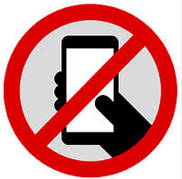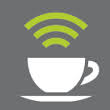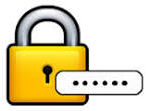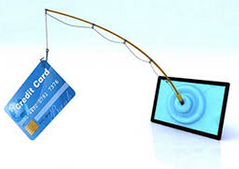6 Things to Remember When Connecting to a Public Network
Since being connected to a network is the “in thing” in our days, most people would really try their best to get connected to the Internet no matter where they are and this includes public networks but as we all know, there could be a lot of loop holes and dangers in public networks that can get you exposed to different threats. In 2013 alone, various customers from around the world have lost billions of dollars collectively to fraudulent transactions and identity theft cases and we might wonder how this could happen in our modern world that is equipped with enough security features in almost any gadget or device as well as on mobile interfaces and websites.
Well, the simple answer is just synonymous to the question. Hackers have more than enough tools in their arsenal to get your information and you multiply the chance of having your identity and financial details stolen when you connect to public networks which are potentially unsafe for surfing. In this tutorial, we will be giving you a list of dos and don’ts when you’re connected to a public network and show you some recommendations in how you can improve your computer’s protection against outside threats that prey on your crucial information and other details so be sure to get yourself ready in following the steps that I’ll be showing below.
1. Avoid Accessing Online Banking Accounts When Connected to a Public Network
A public network is like a big city full of unknowns. You just don’t know who are the ones that are connected to the same public network that you have just connected to so it is best to at least avoid logging in to any account that contains some crucial information or money above all. This is because most hackers station themselves in some areas where there’s a public network and with the right equipment, these hacking geniuses can spy on what you are doing or even get access to your accounts by getting your account details.

2. Log Out from Your Account After Using a Public Computer
Another common mistake that users do is leaving their accounts logged in after using a computer from an Internet cafe. Doing this would expose all your details to the next one who will be using the machine. You would be very lucky if the next user just ignores the page or logs it out for you but in worst cases, your account might be used maliciously in doing some unproductive stuff so be sure to make a habit of logging out from your accounts not just in public computers but also on your own computer because you don’t really know who’s going to steal your information in the long run. Remember! “Prevention is always many times better than cure”!

3. Change Password or PIN After Accessing Accounts From a Public Network
There would really be times that you will need to access your bank account statements through the online banking facility provided by your bank or do some other things that would involve your crucial information and in all of these cases, a good practice that you can adopt is changing passwords or PINs after each moment that you do access your important accounts on a public network. This would ensure that any account details which a person with malicious intent has captured will be void and useless. Changing your passwords or PIN is also a standard operating procedure that most websites really recommend for their users to do to avoid any information from being stolen or and exploited in doing some harmful activities that can either paint a bad picture of you on social media or suck the balance in your bank account up until it gets to zero.

4. Use InPrivate or Incognito Browsing
Popular browsers such as Mozilla Firefox, Internet Explorer or Google Chrome has a feature that will let you browse without leaving any traces on the browser’s history. It is called “Safe Browsing” in Mozilla, “InPrivate Browsing” in Internet Explorer and “Incognito Tab Browsing” in Google Chrome. This feature protects any browsing session from ever being detected by some bots that checks on your browsing history and other malicious software that are used by hackers to get some idea of what you are doing.

5. Use Strong Passwords
Another preventive step that you can do is to use strong passwords in all your accounts that contain crucial information and be sure to avoid using one and the same passwords in all of your accounts. A strong password is something that does not contain any information about you like your birthday or initials. One thing that you can do is to use two unrelated words and combine it with some symbols and numbers. If a website recommends a certain minimum number of characters for a password, be sure that you reach the minimum or even exceed it. If you are a forgetful type of person then we would also recommend that you write down your password in a secret notebook or on a paper and keep it somewhere where it safe from being read by other people. Never store your passwords in your computer or smartphone since it would still make it vulnerable to any hacking activity especially when you are fond of accessing the Internet on a public network.

6. Never Respond to Any Message or Prompt that Asks for Crucial Information
While connected to a public network, you might get a message on your computer screen or even get an email that tells you something like a sort of problem on your bank account needing your urgent attention and along the process, you might be asked to enter your bank information details in an attempt to verify your identity. All of these are fake and are collectively called as a “Phishing” attempt. Phishing is a term used to describe a disguised attempt of collecting important information usually related to financial accounts so the person who sent it can start stealing all of the balances in it or even use it in online purchases. Always keep in mind that your bank will never send you any communication that asks for your details because they already have it and if there is a problem, the bank itself will initiate the process in other ways which is either by registered mail and other ways than sending an email so if you get one of this in your inbox, just ignore it or delete the message right away to avoid any problems.

Stay Protected Anytime
As you can see, there’s a lot of ways in protecting your personal information from all the culprits that feed on it. I have only cited some basic ones here but there are still a lot of preventive steps that you can do in an effort to protect yourself and all your accounts from people who would love to use it for their own benefit. Remember all of the steps that I have shown here and apply them always to ensure that you’re always protected anytime.